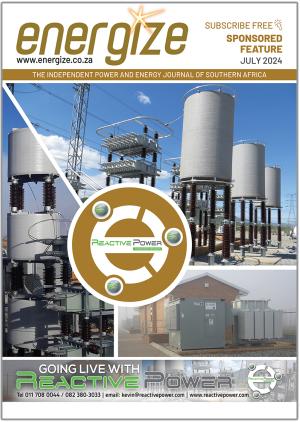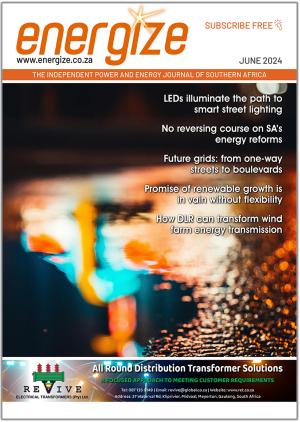by Howard Feldman
Hear me out. It might sound absurd initially but follow my thought process because I think I might be on to something. I wonder if the way to solve the electricity crises at Eskom, is to accept the corruption. Sounds insane and irresponsible but consider the following:
Andre de Ruyter did what he could to fight a system that he claims reaches to a senior level of the ANC. He survived an attempt on his life and following his resignation and an explosive TV interview, is forced to leave the country.

Whereas his future might involve dark sunglasses and baseball cap while he lounges in disguise on a tropical island, he is unlikely to ever be able to switch on a light without experiencing some of the symptoms of post-traumatic stress disorder. Although many in the country might suffer from PTSD from crime and other stresses, he is likely to be one of the few who are triggered by electricity.
One must feel for him.
There is little doubt that the sabotage at the power utility increased significantly the closer he got to uncovering the root of the corruption. The new (acting) CEO, having been appointed Friday, will no doubt have the same challenge. Does he expose and fight something that is inherent in the system, or does he do what he can to make the utility more efficient, despite the money changing hands beneath the surface?
As an accountant, I wonder if he shouldn’t accept that corruption exists as a line item on the books and that trying to reduce it will likely also reduce the output of electricity. Without the assistance of the ANC, which was not forthcoming in the case of De Ruyter, it is unlikely that anyone in the position will have any success in this regard.
With that in mind, let’s put Eskom aside for a minute.
There have been positive developments in the business of electricity production. Legislation allowing private supply has created an environment that will result in new producers coming online in a year or two. Every month, hundreds of homes, shopping centres, warehouses, and office buildings are moving to solar production. South Africans are becoming global experts in the field. Within a short period, South Africa is likely to become one of the “greenest” countries in the world in terms of sustainable power and expertise.
All we have to do is survive the next 18 months.
By accepting corruption for the interim period (until we become independent of Eskom) we will be able to reduce the sabotage at the power stations. This will provide us with more electricity while the country works towards an Eskom-less goal. Even at a billion rand a month, it is worth considering the loss of production, taxes, impact on morale and the number of people who are choosing to move abroad because of the lack of an identifiable plan.
Now we have one. Build corruption into the Eskom budget, reduce sabotage and focus on the new supply.
It’s genius. Except for the part about accepting corruption, not holding people to account and destroying the soul of a nation. That said, and to be fair, it’s not like we are dealing with it in any event. All I am suggesting is that we stop pretending that we are, and we remove the enormous amount of effort that it takes to pretend.
And there is a greater chance that there will be no need to poison the coffee of Eskom’s new CEO.
Honestly, what could go wrong?
















